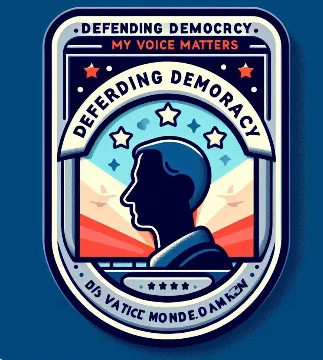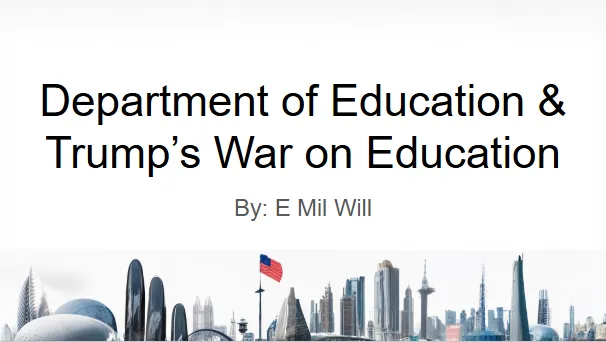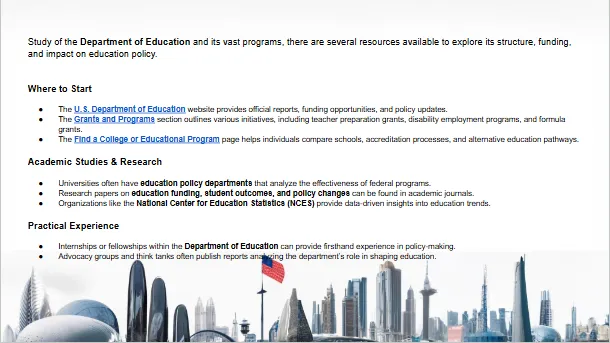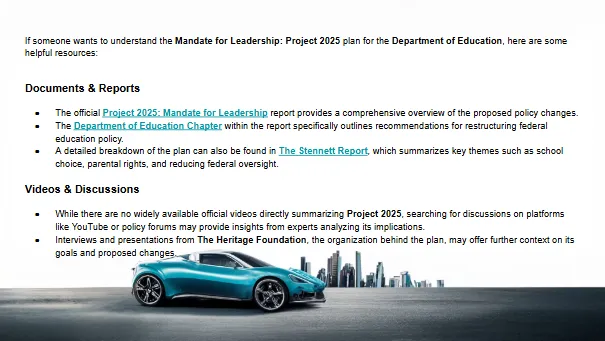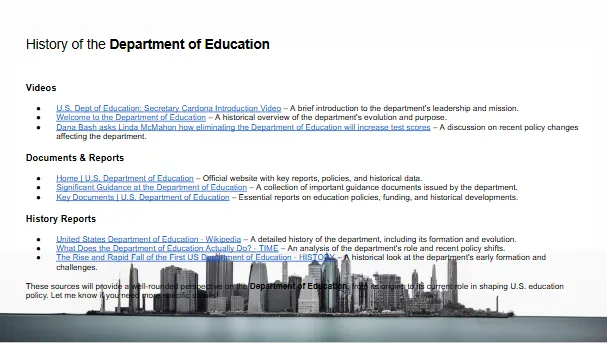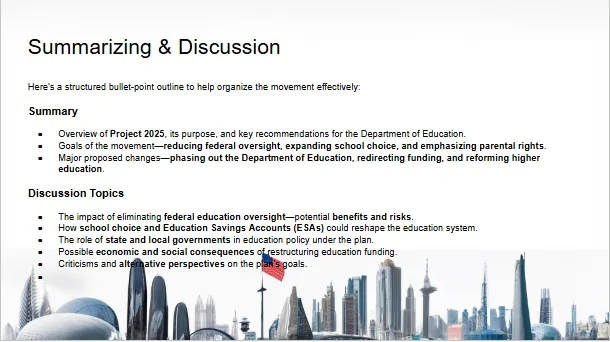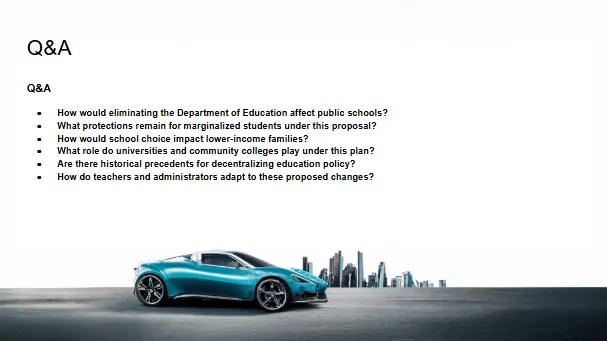UNDERSTANDING THE CONSERVATIVE PROMISE: MANDATE FOR LEADERSHIP
Project 2025 Watch
EXECUTIVE BRANCH
VS
CONSTITUTION
Chapter: Onward
Review
Reading Mandate with Summary
Origins and Purpose of Mandate for Leadership
In 1979, during a Heritage Foundation board meeting, former officials like Bill Simon and Jack Eckerd shared frustrations about the lack of guidance when entering government roles under a conservative administration. They noted that incoming leaders often relied on advice from holdovers or career bureaucrats aligned with liberal policies, making conservative reform difficult. Frank Shakespeare emphasized the need to shift from electoral politics to policy politics once elected, while Bill Middendorf proposed that conservatives needed a better strategy for preparing to govern effectively. This sparked the Heritage Foundation's initiative to create Mandate for Leadership. Development and Goals
Heritage staff and volunteers compiled detailed policy plans across various areas like welfare, defense, and tax reform. The vision was to produce a guidebook for reducing federal government size, limiting its constitutional scope, and freeing the private sector from regulatory overreach—encouraging entrepreneurial growth and strengthening U.S. leadership in the global economy. Impact During Reagan Administration
The first Mandate for Leadership was published in January 1981 and served as a conservative blueprint for Ronald Reagan’s administration. With over 2,000 specific recommendations, it addressed a wide range of reforms. Reagan distributed the Mandate to his Cabinet and recruited many of its contributors into his administration. Nearly half of the recommendations were implemented in Reagan’s first year, resulting in tax cuts, a strengthened military, and long-term economic growth.Revival and Use Under Trump Administration
Subsequent editions of Mandate followed every four years, but the 2016 version stood out. It was embraced by the Trump Administration, which implemented 64% of its proposals in its first year. These included tax cuts, deregulation, energy independence, veterans’ services, and military rebuilding. Trump appreciated the comparison to Reagan, whom he admired, and used Mandate as a benchmark for conservative governance. Mandate as a Conservative Accountability Tool
Mandate has become a way for conservative administrations to measure their achievements and for the public to hold them accountable to stated principles. It presents a contrast to previous liberal administrations like Jimmy Carter’s, characterized by economic stagnation and foreign policy weakness.
Here’s the continuation of the summary:
Mandate's Relevance in 2025 and the Importance of Personnel
Edwin Feulner argues that President Joe Biden’s administration has brought levels of economic, cultural, military, and foreign policy disorder even worse than during Jimmy Carter’s presidency. Therefore, he believes a conservative administration taking office in 2025 must act swiftly to reverse the damage.Crucial to this process is appointing the right personnel throughout the executive branch—individuals already committed to the conservative vision. This includes Cabinet-level officials and agency heads who not only implement policy but also serve as a check on the entrenched administrative state. Examples of needed reform include reining in agencies like the EPA, IRS, and OSHA, which are accused of regulatory overreach and politicization under the Biden Administration.Mandate as the Roadmap for Immediate Action
Feulner emphasizes that new appointees need a clear strategy from day one, given their limited time in office. Mandate for Leadership is presented as this essential roadmap—not to maintain the current bureaucratic machinery, but to aggressively advance conservative principles and demonstrate their effectiveness in contrast to liberal governance.Continuity of Purpose and Ongoing Policy Battles
From the Reagan-era 1981 edition to the 2025 version, the Mandate’s mission remains consistent: propose specific, actionable policies to revitalize the economy, bolster national defense, and reduce centralized federal power. Feulner acknowledges the enduring nature of political conflict in Washington—there are no permanent victories, only ongoing policy struggles as the Left continually works to reverse conservative gains.Coalition Behind the 2025 Mandate
The 2025 edition is a collaborative effort involving Heritage Foundation President Kevin Roberts, Project 2025 Director Paul Dans, and over 50 conservative organizations with 360+ experts. Their goal is to craft solutions rooted in free enterprise, limited government, individual liberty, traditional values, and national strength—not to grow government but to foster a society of freedom and opportunity.The Call to Action: “Onward!”
Instead of concluding with a traditional “Afterword,” Feulner ends with his signature call: “Onward!”—a rallying cry that signifies continued effort and future challenges rather than finality. It underscores a mindset of perpetual advancement, engagement, and readiness for new missions in pursuit of national betterment.
Onward Chapter Review
PAGE 883-887
AUTHOR: Edwin J. Feulner
AUTHOR BACKGROUND CHECK:
Edwin J. Feulner is a prominent American conservative thinker and policy advocate, best known as the founder and longtime president of The Heritage Foundation, one of the most influential conservative think tanks in the United States.
Career Summary:
Early Career & Education: Feulner earned his B.A. from Regis University, followed by an MBA from the University of Pennsylvania’s Wharton School, and later a Ph.D. from the University of Edinburgh. He began his career working on Capitol Hill, serving as an aide and policy adviser to various Republican members of Congress. The Heritage Foundation: In 1977, Feulner became president of The Heritage Foundation. Under his leadership, it transformed from a small operation into a powerhouse of conservative policy research and advocacy. He introduced a more aggressive, timely approach to policy publications, notably with the “Mandate for Leadership” series, which became influential during Ronald Reagan’s presidency. He served as president until 2013, briefly returned as interim president in 2017–2018.Influence and Legacy: Feulner is credited with reshaping how think tanks operate in Washington, emphasizing media presence, rapid policy response, and direct influence on lawmakers. He also played key roles in international conservative networks and organizations, including involvement with the Mont Pelerin Society and co-founding the Asian Studies Center within Heritage. Publications and Honors: He has authored several books on politics and policy, including Getting America Right and The American Spirit. He received numerous awards and recognitions for his service to the conservative movement, including the Presidential Citizens Medal.
How he has impacted project 2025
Edwin J. Feulner is a prominent conservative thinker and strategist, best known for his founding role in the Heritage Foundation, one of the most influential conservative think tanks in the United States. Feulner served as the Heritage Foundation’s president for over 30 years, where he helped shape its conservative policy agenda, particularly on issues like free markets, limited government, and a strong national defense. His work has had a lasting impact on U.S. politics, influencing lawmakers and shaping the ideological direction of the conservative movement. Feulner is also closely associated with Project 2025, an initiative aimed at advancing conservative policies and preparing the next generation of conservative leaders. The project focuses on creating a strategic blueprint for conservative governance, with an emphasis on policy innovation and a vision for the future. Feulner's deep experience in policy, coupled with his long-standing connections within conservative circles, makes him a key figure in efforts to shape the direction of U.S. conservatism.

Biden vs Carter Compared Multiple Times in the Onward Section
1. Economic Policy
Jimmy Carter (late 1970s):Known for "stagflation"—a mix of high inflation, high unemployment, and slow economic growth. Double-digit inflation and interest rates. Gasoline shortages and rationing. Joe Biden (2021–present): Feulner claims Biden brought back similar or worse economic conditions. He references inflation, regulatory overreach, and taxation as areas of concern. Highlights the hiring of 87,000 IRS agents as symbolic of big-government excess.
2. Bureaucratic Overreach
Carter Era: Seen by conservatives as expanding the federal government's regulatory state. Biden Era: Allegedly intensified bureaucratic overreach. Specific examples include the Environmental Protection Agency declaring small streams "navigable waters," the IRS expansion, and OSHA’s attempted enforcement of COVID-19 vaccine mandates.
3. Foreign Policy and National Security
Carter: Often criticized for weakness on the global stage—particularly the Iran hostage crisis and perceived hesitance in confronting Soviet aggression. Biden: Framed by Feulner as presiding over “military and foreign policy turmoil,” although specific international events aren’t detailed in this excerpt. Implication is that Biden, like Carter, projects weakness abroad.
4. Cultural and Political Environment
Carter: Famous for giving the “malaise” speech, which conveyed a national sense of demoralization. Biden: Feulner suggests Biden is presiding over cultural and political disarray that is deeper and more chaotic than Carter’s time.
Overall Framing
Feulner presents Biden as a modern-day Carter figure—but worse. The message is that Biden, like Carter, has expanded government and weakened the nation economically and geopolitically, but with an even more aggressive administrative state and cultural transformation. This comparison is used to justify the urgency of the 2025 Mandate for Leadership as a corrective.
Understanding what this part of the Mandate means to you?

Biden VS Carter By the Numbers
“percent-wise, how correct is the comparison between Biden and Carter”—specifically the claim that Biden is worse than Carter in terms of economic, military, cultural, and foreign policy conditions—we’re getting into a mix of fact-based comparisons and ideological interpretation. Here's a breakdown with rough percentage-based estimates for accuracy, taking into account actual data vs. opinion
ECONOMY
Claim: Biden's economy is worse than Carter’s. Facts:
Inflation: Carter Era Peak (1980): 13.5%Biden Era Peak (2022): ~9.1%Interest Rates: Carter: Fed funds rate peaked at 20%.Biden: ~5.5% as of 2024.Unemployment:Carter (1980): ~7.1%Biden (2023): ~3.5–3.7%
Assessment:
The economic turmoil under Carter was more severe in core inflation, interest rates, and unemployment.
✅ Accuracy: ~30–40% — There are some valid comparisons due to the inflation spike under Biden, but overall, Carter-era economic conditions were objectively worse in key metrics.
BUREAUCRATIC OVERREACH
Claim: Biden has weaponized the federal bureaucracy more than Carter. Facts:
Carter expanded federal regulation, but Biden's administration has been criticized by conservatives for things like: IRS expansion (87,000 new positions over 10 years).OSHA’s COVID vaccine mandate (blocked by the Supreme Court).EPA's expanded interpretation of water regulations (also rolled back by courts).
Assessment:
This is mostly a subjective conservative framing, but Biden has pushed broader administrative actions than Carter in some areas, especially on social, climate, and health policy.
✅ Accuracy: ~50–60% — Valid in scope of administrative ambition, though the characterization as “worse” depends on ideological stance.
FOREIGN POLICY
Claim: Biden's foreign policy is worse than Carter's. Facts:
Carter Era Issues: Iran hostage crisis. Soviet invasion of Afghanistan. Biden Era Issues: Afghanistan withdrawal criticism. Ukraine war (U.S. indirect involvement). Rising tensions with China, Middle East.
Assessment:
Both presidencies faced major global instability, but Carter’s era is historically remembered as diplomatically weaker due to the hostage crisis and perceived indecisiveness.
✅ Accuracy: ~50% — Biden has faced serious global challenges, but Carter’s era still holds as a low point in public opinion and historical rankings.
CULTURAL & SOCIAL ENVIRONMENT
Claim: Cultural/political turmoil is worse under Biden. Facts:
Carter’s era had malaise and distrust in institutions. Biden’s era sees polarized media, gender/identity debates, and social conflict at scale—some intensified by social media.
Assessment:
Harder to quantify, but many would argue that social division and cultural conflict are deeper and more visible today.
✅ Accuracy: ~70% — Cultural tension is arguably more pronounced today, though not all would agree this is due to Biden directly.
OVERALL ESTIMATE
When balancing verifiable facts with partisan framing, the statement that Biden is worse than Carter is about:👉 50–55% accurate from a neutral, data-driven perspective. From a conservative ideological lens, it’s framed as 100% true. From a progressive lens, the comparison might be near 0%.

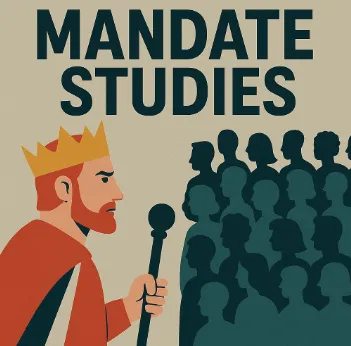
Understanding How the Mandate Effects Our Government by Sections of the Mandate
The following is a breakdown of the 900+ pages in a deeper breakdown of the authors, the standards, diagnosing the reforms, deep understanding of what our tax payer dollars provide and a deeper understanding of the deep Right. We do not have a deep Left issue, we have a issue with those who are lacking credibility with plans that are outlined in black and white. Instead of just living through the next 4 years, learn from America's Mistake for allowing nepotism to override political career morally sound individuals to decide people's fate versus those who are born of privilege. In these library of collective thoughts please feel free to join the movement...
Monitoring the Mandate by diving into the authors, contributors and current implementation of the project 2025 mandate created in 1978 first ran by Ronald Raegan with the Heritage Foundation.
Understanding the fundamentals of the Mandate by diving into the theories, philosophies and breakdowns from the section "Taking the Reins of Government" with break downs from
Understanding the fundamentals of the Mandate by diving into the theories, philosophies and breakdowns from the section "The Common Defense" with break downs from:
Understanding the fundamentals of the Mandate by diving into the theories, philosophies and breakdowns from the section "The General Welfare" with break downs from:
Understanding the fundamentals of the Mandate by diving into the theories, philosophies and breakdowns from the section "The Economy" with break downs from:
Understanding the fundamentals of the Mandate by diving into the theories, philosophies and breakdowns from the section "Independent Regulatory Agencies" with break downs from:
Understanding the fundamentals of the Mandate by diving into the theories, philosophies and breakdowns from the section "Onward" with break down and final thoughts on project 2025:
Understanding the Mandate , What it means to you and how can we grow from learning it.

Stand up for US Department of Education Against Project 2025 Mandates
The future of education is at a crossroads, and the Department of Education plays a vital role in ensuring access to quality learning opportunities for all. However, proposed policies threaten to dismantle essential programs, impacting students, teachers, and communities nationwide. By joining together, we can advocate for a strong, well-supported education system that prioritizes inclusivity, innovation, and success. Whether through raising awareness, participating in discussions, or pushing for informed policies, every effort counts in safeguarding the integrity of public education.
This is a call to action for educators, advocates, and concerned citizens to come together and make a difference. Through collective knowledge and active engagement, we can challenge harmful reforms and champion initiatives that strengthen the Department of Education. The upcoming virtual workshop on April 21-23 will provide key insights into these urgent matters, equipping participants with the tools to take action. Let’s stand for the future of education—because protecting learning today ensures a brighter tomorrow for all. Join us in this mission and help drive meaningful change!
Power Point For 3 Day Workshop 6pm-8pm April 21-23, 2025
Understanding the Mandate Which Touches the Following
The following is a breakdown of the 900+ pages in a deeper breakdown of the authors, the standards, diagnosing the reforms, deep understanding of what our tax payer dollars provide and a deeper understanding of the deep Right. We do not have a deep Left issue, we have a issue with those who are lacking credibility with plans that are outlined in black and white. Instead of just living through the next 4 years, learn from America's Mistake for allowing nepotism to override political career morally sound individuals to decide people's fate versus those who are born of privilege. In these library of collective thoughts please feel free to join the movement...
Executive overreach redefining the Constitution and it's relationship with the other branches
The Common Defense Outlining the Agency Roles
US Press
International Press
The Economy Outlines the Roles
Case for Fair Trade
Case For Free Trade
The Independent Regulatory Agencies Outlines the Roles For Agencies
The propose for this Summary is in an attempt to allow others to understand that this mission statement known as the Mandate is different than just a political movement. This movement purpose is not meant to help those who it claims to and we would argue that their Mandate has and will do damage to our world. This has been a journey of exploration, interesting, hypocritical, short sighted and often times cruel in nature.
Small Call to Action Headline
Small Call to Action Headline

Website Development
Custom Website DesignResponsive Web DevelopmentUser Experience (UX) DesignE-commerce Website DevelopmentContent Management System (CMS) Integration

Dev Development
Full-Stack DevelopmentFrontend DevelopmentBackend DevelopmentAPI Development and IntegrationDatabase Design and Management

Scrum Master Services
Agile Project ManagementScrum Master ConsultationSprint Planning and ExecutionTeam Collaboration and CoordinationContinuous Improvement Strategies
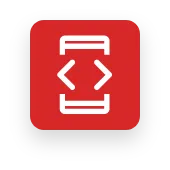
Mobile App Design
iOS App Development
Android App Development
Cross-Platform App Development
Mobile App UI/UX Design
App Maintenance and Support

Online Marketing
Search Engine Optimization (SEO)Social Media MarketingContent MarketingEmail MarketingPay-Per-Click (PPC) Advertising

Drone Services
Aerial Photography and VideographyDrone Mapping and SurveyingInspection and Monitoring ServicesGIS (Geographic Information System) IntegrationCustom Drone Software Development
“ eMillion Concepts. eMillion People. eMillion Solutions.”
© 2024 E-Millions Consulting Services - All Rights Reserved,
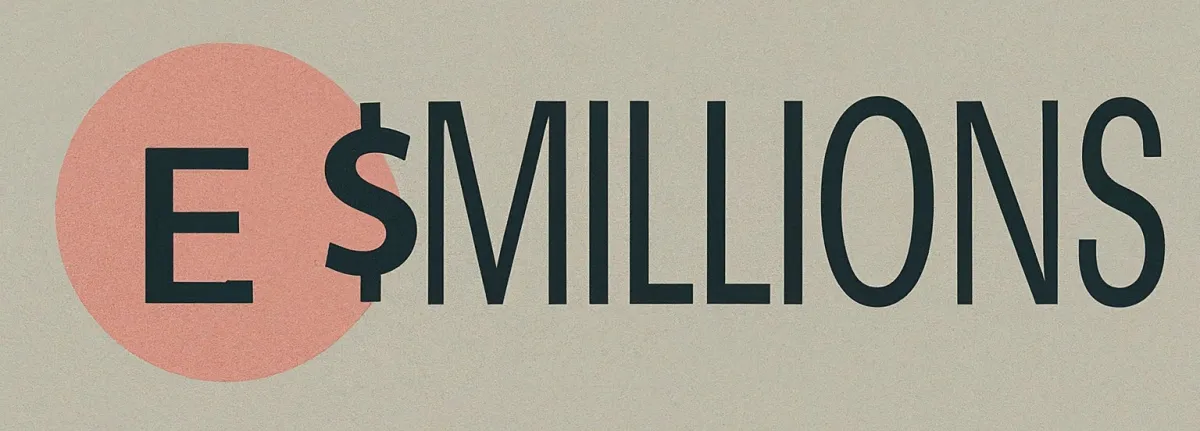
etechmilli@gmail.com
(404) 723-3940
© 2026 Company Name - All Rights Reserved, consectetur adipiscing elit. Maecenas commodo suscipit tortor, vel tristique sapien
